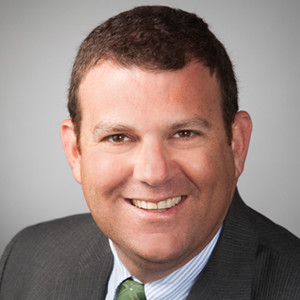When you search for a product or company, in many instances, Wikipedia will be on the first page – if not the first listing – of your search results. With the announcement of the last publication of Encyclopedia Britannica, we are at the end of an era. Wikipedia is the go-to source for basic information and, often, its crowd-sourced entries are as accurate as some printed encyclopedias.
But in a recent survey of PR professionals conducted by Marcia W. DiStaso, PhD., co-chair of PRSA’s National Research Committee, respondents familiar with their client’s or company’s Wikipedia entries reported that 60% of the articles contained factual errors. This is a problem.
Wikipedia maintains a strict neutrality policy. This means that if you are a stakeholder in a particular entity, you should not edit that entry. If you are an employee – or a PR representative – for Company X, any edits you make to Company X’s page will likely be reverted.
This policy certainly puts our industry between a rock and a hard place.
As PR professionals, it is our job to get out your message. We fend off possible crises and correct misinformation, among other responsibilities, in the name of protecting your company’s goodwill and helping to drive your success.
For even the most ethical PR professionals, the Wikipedia Problem is a major one. In the interest of transparency, many pros have declared their affiliation before making changes to entries, only to find that those changes would still be reverted or their Talk Page recommendations ignored. Professionals who do not announce their affiliation risk banishment when they are found out (and they very likely will be). Links to company websites with factual information are struck down as biased—they must provide a third party link. The process can be overwhelming.
Fortunately, an intrepid group of PR professionals, marketers and Wikipedians are working toward a solution.
At the Facebook group for Corporate Representatives for Ethical Wikipedia Engagement, or CREWE, nearly 300 professionals have come together to discuss Wikipedia, its editing policy and what can be done to ensure that company entries are accurate, relevant and up-to-date. In the spirit of crowd-sourcing, the group has developed a flowchart to help professionals better understand Wikipedia’s policies and the options they have (Find the PDF here).
Wikipedia is here to stay. Until editors and representatives can find a solution that benefits both Wikipedia and its subjects, it is important that PR professionals are aware of and understand the current policies in place and what that means for our clients. CREWE is one part of that solution, but our behavior as ethically responsible representatives is equally important. While it may be a bit far to say that our intentions are altruistic, our actions and recommendations must show that PR professionals and client representatives seek to provide factual, if not neutral, information to better Wikipedia and its articles.

 As design director at Cookerly, Tim serves as the creative lead in the development of branding campaigns, print collateral and digital media for clients across a broad range of industries, including consumer, professional services, healthcare and technology.
As design director at Cookerly, Tim serves as the creative lead in the development of branding campaigns, print collateral and digital media for clients across a broad range of industries, including consumer, professional services, healthcare and technology. As senior vice president at Cookerly, Mike Rieman specializes in building and maintaining relationships with the media and has an excellent track record of landing significant placements in print and broadcast media including USA Today, Wall Street Journal, Bloomberg and Money Magazine.
As senior vice president at Cookerly, Mike Rieman specializes in building and maintaining relationships with the media and has an excellent track record of landing significant placements in print and broadcast media including USA Today, Wall Street Journal, Bloomberg and Money Magazine.

 As vice president of Cookerly, Sheryl Sellaway uses her extensive corporate communications background to lead consumer PR efforts, deliver strategy for marketing programs and share expertise about community initiatives.
As vice president of Cookerly, Sheryl Sellaway uses her extensive corporate communications background to lead consumer PR efforts, deliver strategy for marketing programs and share expertise about community initiatives.
 As a senior vice president at Cookerly, Matt helps organizations protect and advance their reputations and bottom lines through strategic communications programs. Using creativity, planning and flawless execution, he works with a team to deliver compelling public relations campaigns that produce results and support clients’ business objectives.
As a senior vice president at Cookerly, Matt helps organizations protect and advance their reputations and bottom lines through strategic communications programs. Using creativity, planning and flawless execution, he works with a team to deliver compelling public relations campaigns that produce results and support clients’ business objectives.
Holly, thanks so much for alerting me to this when I wrote about Wikipedia in yesterday’s newsletter. I am going to mention CREWE in my newsletter this coming week. And I’m going to join the Facebook group.
You’re very welcome, Joan. I think that the more professionals involved in CREWE will help us find a solution that is agreeable to both sides much faster. Happy to hear it will be included in your newsletter!